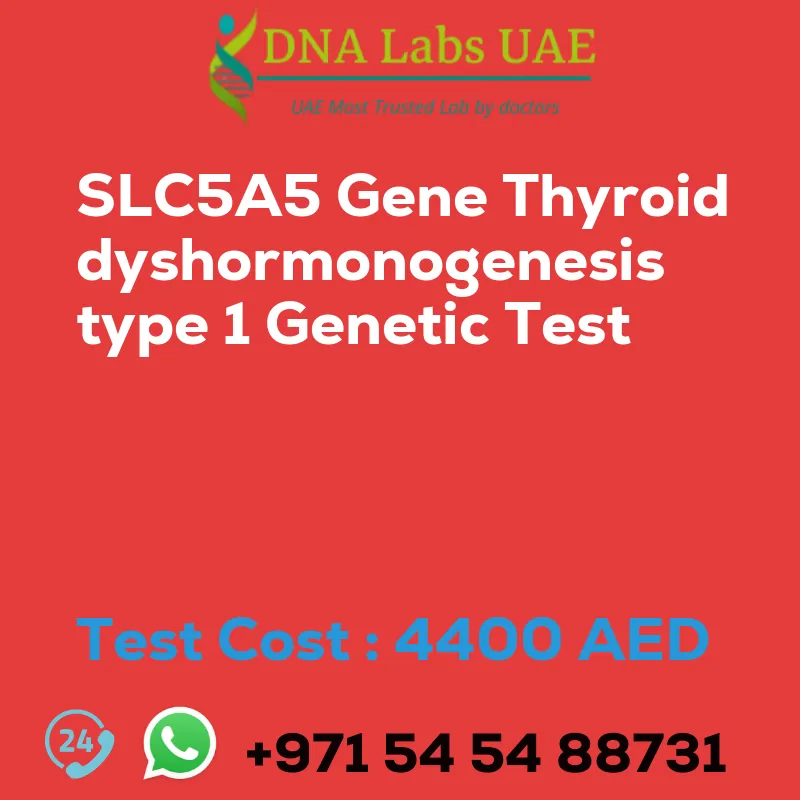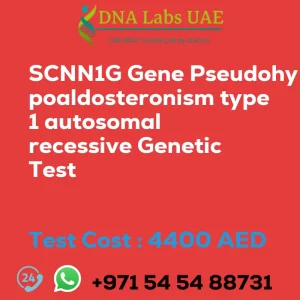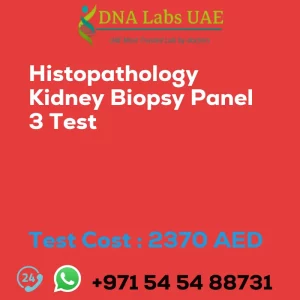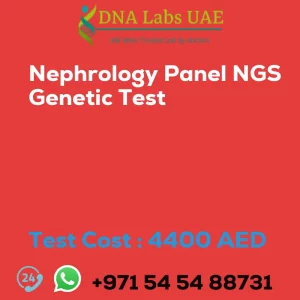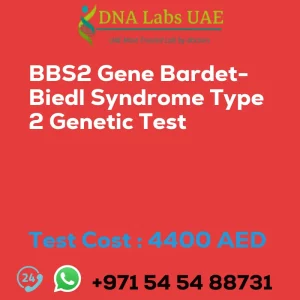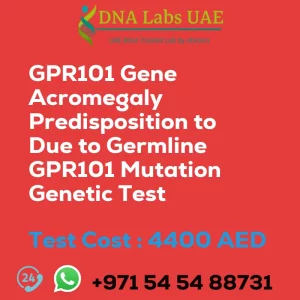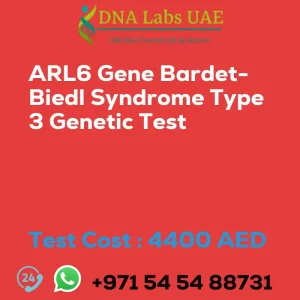SLC5A5 Gene Thyroid dyshormonogenesis type 1 Genetic Test
Cost: AED 4400.0
Are you experiencing symptoms of thyroid dyshormonogenesis type 1? DNA Labs UAE offers the SLC5A5 Gene Thyroid dyshormonogenesis type 1 Genetic Test to help diagnose and understand this genetic disorder.
Test Components
- Price: AED 4400.0
- Sample Condition: Blood or Extracted DNA or One drop Blood on FTA Card
- Report Delivery: 3 to 4 Weeks
- Method: NGS Technology
- Test Type: Hepatology Nephrology Endocrinology Disorders
Referring Doctor
If you suspect you have thyroid dyshormonogenesis type 1, consult with a General Physician who can refer you for the SLC5A5 Gene Thyroid dyshormonogenesis type 1 Genetic Test.
Test Department
The SLC5A5 Gene Thyroid dyshormonogenesis type 1 Genetic Test is conducted by our Genetics department.
Pre Test Information
Before undergoing the SLC5A5 Gene Thyroid dyshormonogenesis type 1 Genetic Test, it is important to provide the clinical history of the patient. Additionally, a Genetic Counselling session will be conducted to draw a pedigree chart of family members affected by the SLC5A5 Gene Thyroid dyshormonogenesis type 1 Genetic Test gene SLC5A5.
Test Details
The SLC5A5 gene is associated with thyroid dyshormonogenesis type 1, a genetic disorder affecting the production of thyroid hormones. Our NGS genetic testing uses Next-Generation Sequencing technology to analyze the DNA sequence of genes and identify any variations or mutations. To perform the SLC5A5 Gene Thyroid dyshormonogenesis type 1 Genetic Test, a sample of DNA is collected, typically through a blood or saliva sample. The DNA is then sequenced to determine the specific sequence of the SLC5A5 gene. This helps identify any variations or mutations that may be causing thyroid dyshormonogenesis type 1.
NGS genetic testing provides valuable information for diagnosis, prognosis, and treatment decisions. It can also assist in genetic counseling and family planning. However, please note that NGS genetic testing may not be available or suitable for all individuals with suspected thyroid dyshormonogenesis type 1. It is recommended to consult with a healthcare professional or genetic counselor to assess your specific situation and receive appropriate guidance.
| Test Name | SLC5A5 Gene Thyroid dyshormonogenesis type 1 Genetic Test |
|---|---|
| Components | |
| Price | 4400.0 AED |
| Sample Condition | Blood or Extracted DNA or One drop Blood on FTA Card |
| Report Delivery | 3 to 4 Weeks |
| Method | NGS Technology |
| Test type | Hepatology Nephrology Endocrinology Disorders |
| Doctor | General Physician |
| Test Department: | Genetics |
| Pre Test Information | Clinical History of Patient who is going for SLC5A5 Gene Thyroid dyshormonogenesis type 1 NGS Genetic DNA Test. A Genetic Counselling session to draw a pedigree chart of family members affected with SLC5A5 Gene Thyroid dyshormonogenesis type 1 NGS Genetic DNA Test gene SLC5A5 |
| Test Details |
The SLC5A5 gene is associated with thyroid dyshormonogenesis type 1, which is a genetic disorder that affects the production of thyroid hormones. NGS (Next-Generation Sequencing) genetic testing is a technique used to analyze the DNA sequence of genes and identify any variations or mutations that may be present. A NGS genetic test for the SLC5A5 gene would involve collecting a sample of DNA, usually through a blood or saliva sample, and sequencing the DNA to determine the specific sequence of the gene. This can help identify any variations or mutations in the SLC5A5 gene that may be causing thyroid dyshormonogenesis type 1. By identifying the specific genetic variant causing the disorder, NGS genetic testing can help with diagnosis, prognosis, and treatment decisions. It can also provide valuable information for genetic counseling and family planning. It is important to note that NGS genetic testing may not be available or appropriate for all individuals with suspected thyroid dyshormonogenesis type 1. The decision to undergo genetic testing should be made in consultation with a healthcare professional or genetic counselor who can assess the individual’s specific situation and provide appropriate guidance. |

